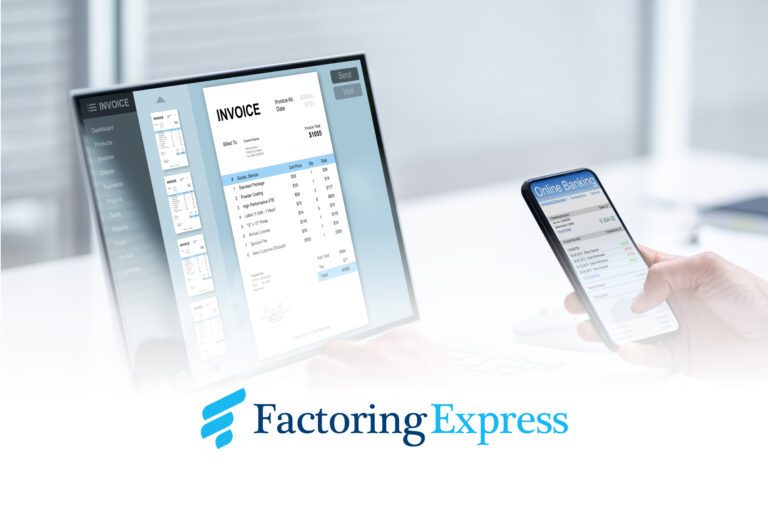Are you ready to embark on a journey through the exciting world of freight management? In this comprehensive guide, we will unravel the mysteries surrounding freight and equip you with the knowledge and tools to optimize your shipping operations.
Whether you’re a seasoned shipper or new to the logistics realm, this guide will provide valuable insights to enhance your freight management skills.
Understanding Freight Basics: What Is Freight and How Does It Impact Your Business?
What does freight mean? Define freight for me.
Alright, before delving deeper into the intricacies of freight management, let’s start by clarifying what exactly freight entails. In simple terms, freight refers to goods or cargo transported from one location to another, typically by trucks, trains, ships, or airplanes.
It encompasses a wide range of products, from raw materials and manufactured goods to consumer goods and perishable items. Understanding the fundamentals of freight is crucial for establishing a solid foundation in managing your shipments effectively.
The Importance of Freight Management: Unlocking the Key Benefits of Efficient Freight Management
Freight management plays a pivotal role in ensuring the smooth flow of goods and optimizing transportation processes. By implementing sound freight management practices, businesses can reap numerous benefits, such as cost savings, improved customer satisfaction, and enhanced supply chain efficiency.
Let’s explore some of the key advantages that effective freight management brings to the table.
- Cost Savings: Efficient freight management helps minimize expenses associated with transportation, storage, and inventory management. By optimizing routes, consolidating shipments, and leveraging economies of scale, you can significantly reduce operational costs.
- Enhanced Customer Satisfaction: Timely and reliable delivery is a cornerstone of excellent customer service. Effective freight management enables you to meet delivery deadlines consistently, thereby boosting customer satisfaction and loyalty.
- Streamlined Supply Chain: Proper coordination of freight movements ensures a streamlined supply chain. From procurement to distribution, optimized freight management allows for efficient inventory replenishment and minimizes bottlenecks in the transportation process.
Exploring Freight Management Systems: Unlocking the Power of Technology in Freight Management
- Efficient Order Management: A reliable FMS enables you to centralize and manage all your shipping orders efficiently. From order placement to tracking and delivery confirmation, the system keeps you in control every step of the way.
- Route Optimization: With advanced route optimization capabilities, FMS helps you plan the most efficient routes, taking into account factors like distance, traffic conditions, and delivery windows. By minimizing travel distances and maximizing resource utilization, you can reduce fuel consumption and enhance productivity.
- Real-Time Tracking: Stay informed about the whereabouts of your shipments with real-time tracking features offered by FMS. From pickup to final delivery, you can monitor the status of your cargo and proactively address any potential delays or issues.
Types of Freight and Their Unique Considerations: Navigating the Vast Landscape of Freight Categories
- Full Truckload (FTL) Freight:
- Definition: Full truckload freight refers to shipments that occupy an entire truck trailer. These shipments are typically larger in volume and require dedicated transportation capacity.
- Key Considerations: When managing FTL freight, factors such as load optimization, carrier selection, and trailer utilization play a critical role. Proper coordination and communication with carriers are essential to ensure smooth FTL operations.
- Less Than Truckload (LTL) Freight:
- Definition: Less than truckload freight refers to shipments that do not require a full truck trailer. These shipments are typically smaller and share transportation space with other shippers’ goods.
- Key Considerations: Managing LTL freight involves optimizing shipments to maximize trailer capacity, consolidating loads whenever possible, and coordinating pickup and delivery schedules to minimize transit times.
- Air Freight:
- Definition: Air freight involves the transportation of goods via airplanes. It is known for its speed and reliability, making it ideal for time-sensitive shipments or long-distance transportation.
- Key Considerations: When dealing with air freight, factors such as dimensional weight calculations, compliance with air cargo regulations, and efficient coordination with airlines become crucial for successful shipment execution.
The Role of Transportation Management Systems (TMS): Moving Freight Management with Cutting-Edge Technology
Transportation management system definition:
In today’s dynamic logistics landscape, transportation management systems (TMS) have revolutionized the way businesses handle their freight operations.
Now that we have learned the TMS system’s meaning, let’s explore the key features and benefits of integrating a robust TMS into your freight management strategy.
- Streamlined Order Processing:
- TMS automates order processing, reducing manual errors and ensuring accurate data entry.
- With a user-friendly interface, order creation and management become efficient and hassle-free.
- Efficient Load Planning and Optimization:
- TMS analyzes various parameters like shipment volume, weight, and delivery constraints to optimize load planning.
- By consolidating shipments and optimizing routes, TMS minimizes empty miles and improves resource utilization.
- Real-Time Tracking and Visibility:
- Stay updated on the status of your shipments with real-time tracking and visibility features provided by TMS.
- Monitor delivery milestones, receive notifications, and proactively address any potential disruptions.
Freight Logistics Optimization: How It Works Unleashing the Power of Optimization in Freight Management
Freight logistics optimization is a strategic approach to enhancing supply chain efficiency and reducing costs. Let’s delve into the key components and processes that drive successful optimization in freight management.
- Route Optimization:
- Using advanced algorithms, optimization tools determine the most efficient routes based on multiple variables like distance, traffic, and delivery time windows.
- By minimizing travel distances and eliminating unnecessary detours, route optimization helps reduce fuel consumption and improve delivery times.
- Load Consolidation:
- Optimization algorithms analyze shipment characteristics and identify opportunities for load consolidation.
- By combining multiple smaller shipments into a single larger one, businesses can achieve economies of scale, reduce transportation costs, and increase resource efficiency.
- Carrier Selection and Rate Negotiation:
- Freight motion logistics optimization involves evaluating carrier performance, service levels, and pricing structures.
- By selecting the right carriers and negotiating favorable rates, businesses can optimize cost-efficiency without compromising on service quality.
The Future of Freight Management: Embracing Innovation and Shaping the Logistics Landscape
The world of freight management is evolving at an unprecedented pace, driven by technological advancements and changing consumer expectations. Let’s explore some key trends and innovations that are shaping the future of freight management.
- Blockchain Technology:
- Blockchain offers secure, transparent, and tamper-proof record-keeping, which enhances traceability and reduces fraud in supply chain transactions.
- Smart contracts and decentralized platforms powered by blockchain are revolutionizing freight documentation, payment processes, and freight tracking.
- Artificial Intelligence (AI) and Machine Learning (ML):
- AI and ML enable predictive analytics, demand forecasting, and intelligent route optimization.
- By leveraging these technologies, businesses can gain valuable insights, optimize operations, and enhance decision-making in real-time.
- Sustainability and Green Logistics:
- With increasing environmental awareness, sustainability has become a key focus in freight management.
- Implementing eco-friendly practices, such as optimizing routes, using alternative fuels, and embracing electric vehicles, can significantly reduce carbon footprints.
Freight Management System: Simplifying Logistics Operations Harnessing Technology for Efficient Freight Management
A robust freight management system is a game-changer in the logistics industry. Let’s explore the key functionalities and benefits of implementing a comprehensive freight management system in your operations.
- Automated Order Processing:
- Streamline your order processing by automating tasks such as order creation, documentation generation, and invoicing.
- Reduce errors and save time with seamless integration between your freight management system and other business systems.
- Carrier Selection and Rate Comparison:
- Leverage your freight management system to evaluate and compare carrier options based on factors like rates, service levels, and performance history.
- Make informed decisions to select the best carriers that align with your business requirements and objectives.
- Real-Time Tracking and Visibility:
- Enhance transparency and customer satisfaction by providing real-time tracking and visibility of shipments.
- Keep your customers informed about the progress of their shipments and proactively address any potential issues.
The Importance of Freight Documentation Navigating the Paperwork for Seamless Operations
Proper documentation is essential in freight management to ensure compliance, facilitate smooth operations, and mitigate risks. Let’s delve into the key documents involved in the freight management process and their significance.
- Bill of Lading (BOL):
- The BOL serves as a contract between the shipper, carrier, and consignee, detailing the terms and conditions of the shipment.
- It includes essential information such as the origin and destination, description of goods, and special instructions.
- Freight Invoice:
- The freight invoice provides a detailed breakdown of the charges associated with the shipment, including freight costs, accessorials, and additional fees.
- It serves as a billing document and supports financial reconciliation between the shipper and carrier.
- Proof of Delivery (POD):
- The POD is a crucial document that confirms the delivery of goods to the consignee.
- It includes the consignee’s signature, date and time of delivery, and any relevant notes or exceptions.
Optimizing Freight Management in Logistics for Safe Transport
Effective freight packaging is essential to ensure the safe and secure transportation of goods. Let’s explore some best practices for optimizing freight packaging.
- Proper Packaging Materials:
- Use appropriate packaging materials such as boxes, pallets, or crates that are suitable for the nature and fragility of the goods.
- Ensure the packaging materials meet industry standards and provide adequate protection.
- Securing and Labeling:
- Secure the goods within the packaging to prevent shifting or damage during transit.
- Label the packages clearly with essential information such as shipping addresses, handling instructions, and hazardous material indicators.
- Load Stability and Consolidation:
- Optimize load stability by arranging packages in a way that minimizes movement and prevents damage.
- Consolidate smaller packages into larger units to reduce the risk of loss or misplacement during transportation.
Outsourcing Freight Management: A Strategic Approach Unlocking Operational Efficiency and Focus
Outsourcing freight management functions can be a strategic decision to optimize operations and enhance efficiency. Let’s explore the advantages of outsourcing and key considerations when choosing a logistics partner.
- Freight Experience:
- Partnering with a logistics provider gives you access to their industry knowledge, experience, and network.
- Benefit from their expertise in freight management, regulatory compliance, and supply chain optimization.
- Scalability and Flexibility:
- Outsourcing allows you to scale your operations based on fluctuating demand and business needs.
- Flexibility in resources and capabilities enables you to adapt to changing market dynamics effectively.
- Focus on Core Competencies:
- By outsourcing non-core functions like freight management, businesses can concentrate on their core competencies and strategic objectives.
- This helps improve productivity, innovation, and customer satisfaction.
Unleashing Your Freight Potential with Factoring Express
- Fast and Flexible Funding:
- Access quick and flexible funding solutions tailored to the unique needs of your freight business.
- Enjoy expedited cash flow, allowing you to cover expenses, invest in growth, and seize new opportunities.
- Extensive Freight Expertise:
- Benefit from Factoring Express’s deep understanding of the freight industry and its specific challenges.
- Tap into our vast experience in working with shippers, carriers, and logistics companies to optimize financial processes.
- Fuel Advances for Your Trucking Business:
- Streamline your operations with Factoring Express’s fuel advance solutions.
- Get immediate funds to cover fuel expenses, ensuring your trucks keep moving without interruption.
- Dedicated Customer Support:
- Experience exceptional customer service with Factoring Express’s team of dedicated professionals.
- Benefit from personalized assistance, prompt responses, and ongoing support to address your factoring and freight-related needs.
At Factoring Express, we understand the importance of reliable cash flow and efficient financial management in the freight industry.
With our comprehensive factoring solutions and industry expertise, we are committed to helping you overcome financial challenges, seize opportunities, and achieve long-term success.




